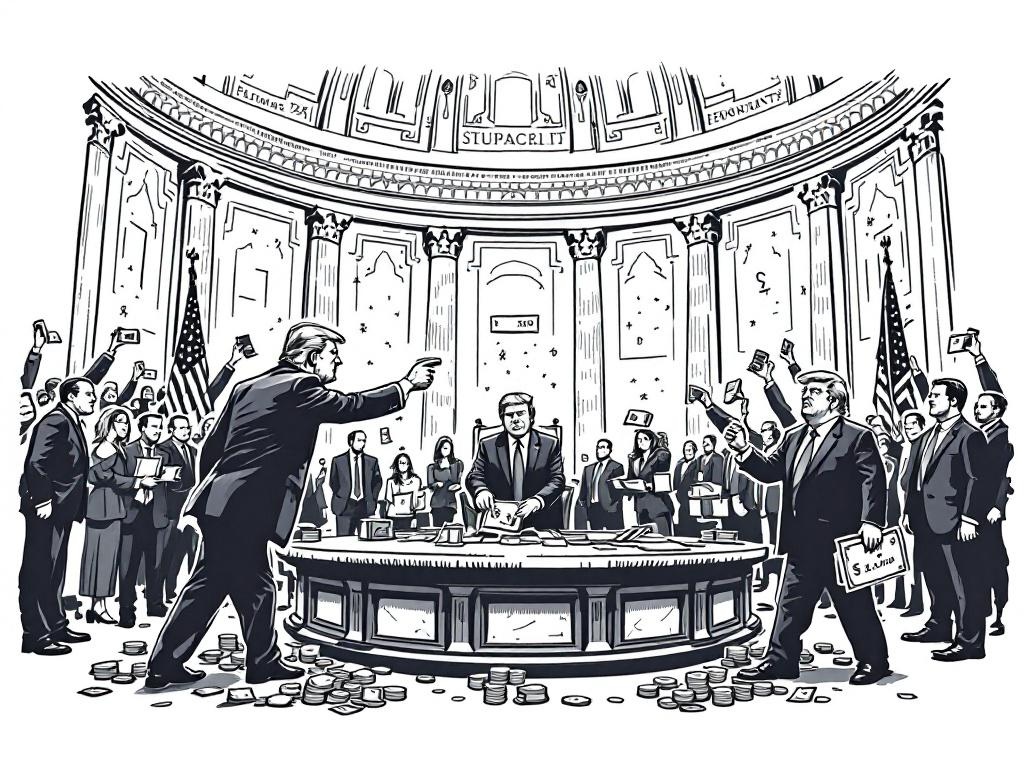House Republicans Pass Trump's Tax and Spending Bill Narrowly

Washington, D.C., Thursday, 3 July 2025.
The House narrowly passes Trump’s ‘big beautiful bill’ with a 218-214 vote, reflecting a GOP victory amid economic concerns. Key features include tax cuts and reduced social welfare funding.
House Vote Reflects GOP Policy Direction
On July 3, 2025, the House of Representatives, controlled by Republicans, narrowly passed President Donald Trump’s ‘big beautiful bill’ with a vote of 218-214. This legislation is a significant victory for the GOP as it encapsulates the party’s agenda of reducing taxes substantially and cutting social welfare funding. Houe Minority Leader Hakeem Jeffries attempted to block the bill with a record-breaking eight-hour speech, but ultimately failed to sway any votes [1][3][4].
Content and Controversy of the Legislation
The bill, which is nearly 900 pages long, includes approximately $4.5 trillion in tax cuts. It perpetuates and expands upon the tax reductions from Trump’s first term and introduces new provisions for border security and defense spending amounting to $350 billion [1][2][6]. However, it offsets these measures with severe reductions in Medicare and Medicaid, potentially leaving millions more Americans uninsured. The Congressional Budget Office estimates this could result in an increase of the national deficit by about $3.3 trillion over the next decade due to the bill’s impacts [3][4].
Economic and Social Implications
The ‘big beautiful bill’ significantly benefits wealthier Americans, with those earning over $1 million seeing an increase of about 3% in their after-tax income, compared to an average increase of 2.5% for all taxpayers. Moreover, the top 1% of earners, particularly in states like Wyoming, South Dakota, and Texas, could see tax cuts exceeding $100,000 annually [7][9]. This starkly contrasts with the peril faced by low-income families due to cuts in social programs like SNAP and Medicaid, an aspect criticized by Democrats who were uniformly opposed to the bill [1][5][8].
Political Ramifications and Future Steps
Despite the bill’s passage, the road to implementation faces challenges, as political and public scrutiny intensifies. President Trump, who pushed hard for the bill’s passage, now looks forward to signing it into law, a move he claims will bolster America’s economic position in the global market [2][6]. This legislation also reflects broader Republican strategies in Congress, as it aims to diminish the legacies of previous Democratic administrations [4][7]. The bill now awaits President Trump’s signature to become law, marking a pivotal moment in U.S. fiscal policy-making [5].
Sources
- www.themirror.com
- apnews.com
- www.cnbc.com
- www.cnbc.com
- www.taxfoundation.org
- www.cbsnews.com
- npr.org
- cnbc.com
- cnbc.com